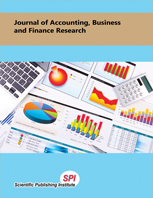Corporate Tax and Profitability of Deposit Money Banks in Nigeria
DOI:
https://doi.org/10.20448/2002.32.47.55Keywords:
Corporate tax, Deposit money banks, Liquidity, Profitability and Nigeria.Abstract
The study examines the impact of corporate tax on profitability of Deposit Money Banks in Nigeria. The liquidity challenges faced by banks in Nigeria in the recent times and the restricted access to bank loans and facilities by firms and individuals could be linked with high corporate tax payment and this has adversely affected the economy at large. The specific objective of this study is to investigate the extent to which company income tax (CIT) affects the profit after tax (PAT) of Deposit Money Banks in Nigeria. The research adopted a causal research design and a sample of 12 banks were selected out of the currently existing 21 banks based on Authors’ judgment and data availability. The secondary data on PAT (dependent variable) CIT (independent variable) used were collected from the published financial statements of banks via their websites. The panel data used in this study covers a period from 2006 to 2016. Multiple regression analysis and t-test were used to analyze the data with the aid of SPSS version 20. The regression result on the data for Access Bank Plc., Diamond Bank Plc. and GTB Plc., revealed a positive significant impact of CIT on PAT and existence of a positive relationship between PAT and CIT. While the rest of the other 9 banks showed both negative and lack of impact of CIT on PAT. The findings showed improper application of ability-to-pay theory in Nigeria. The study therefore recommends a review of the Nigerian fiscal policy and introduction of tax reforms that allow adequate tax incentives for banks especially during financial crises and to cope with liquidity challenges.


